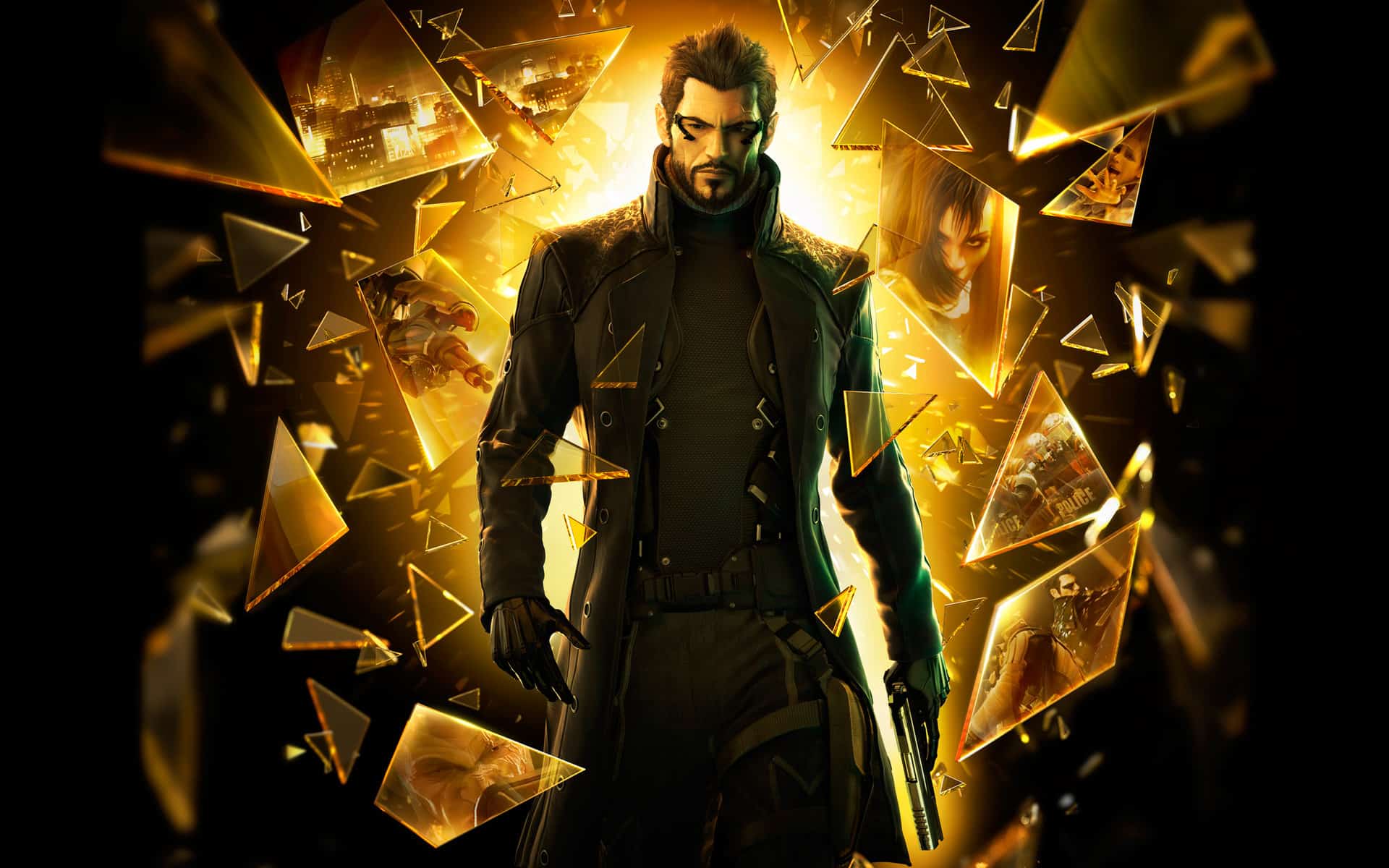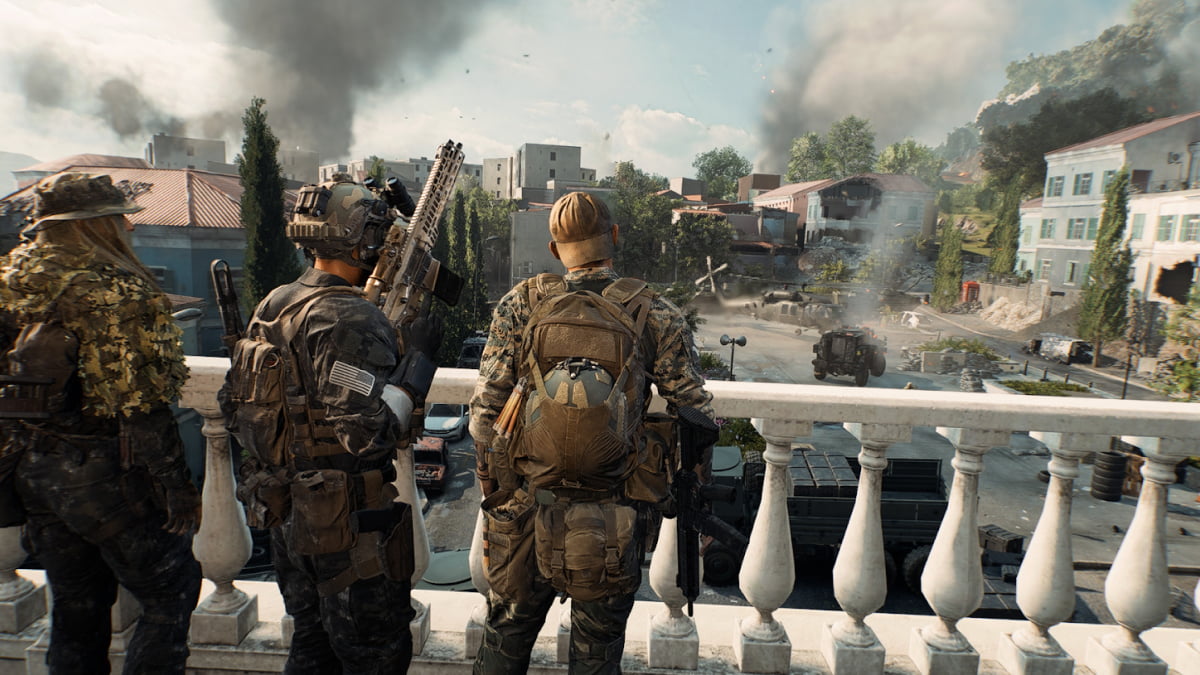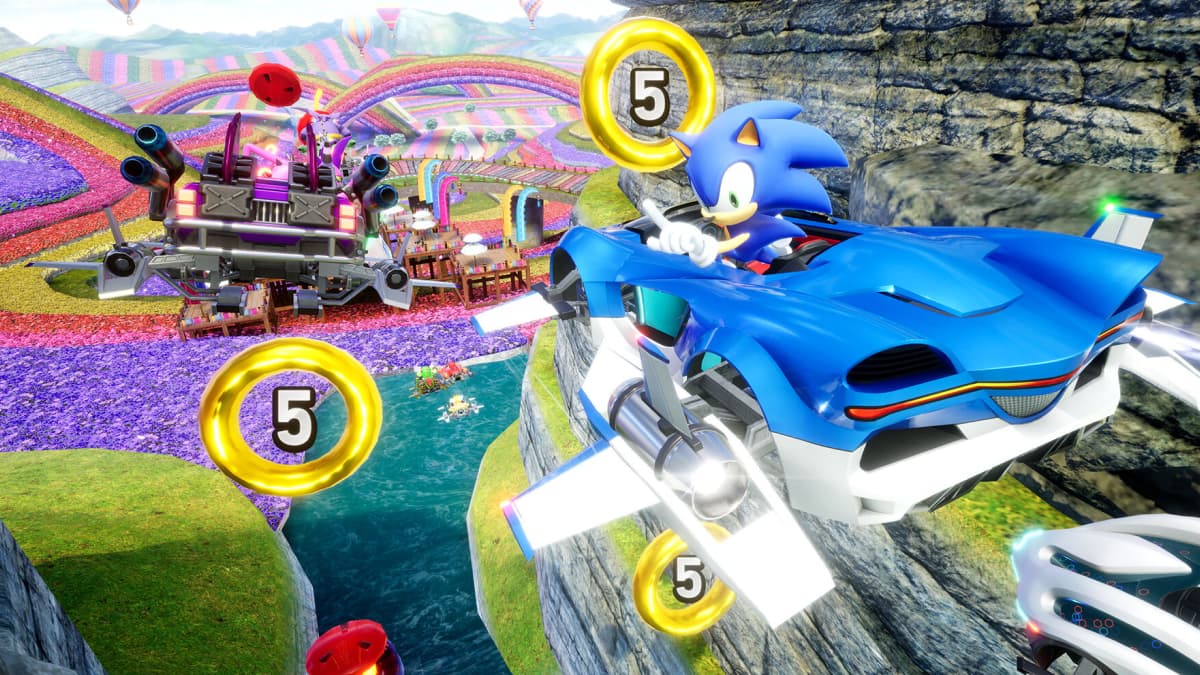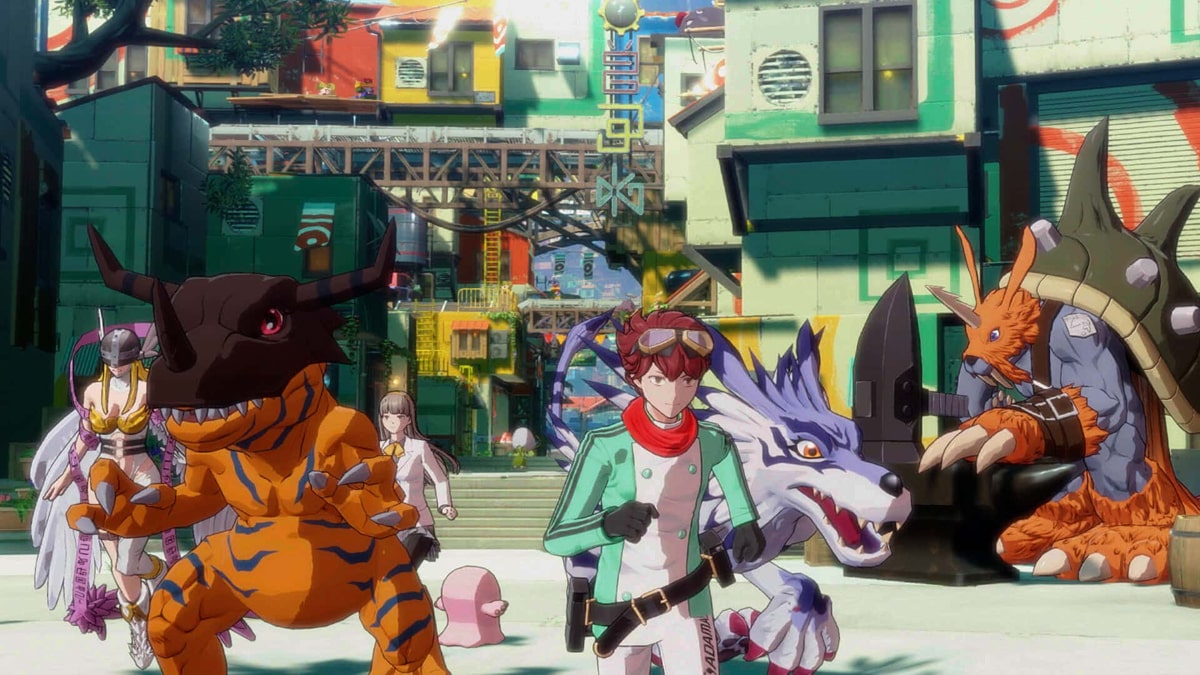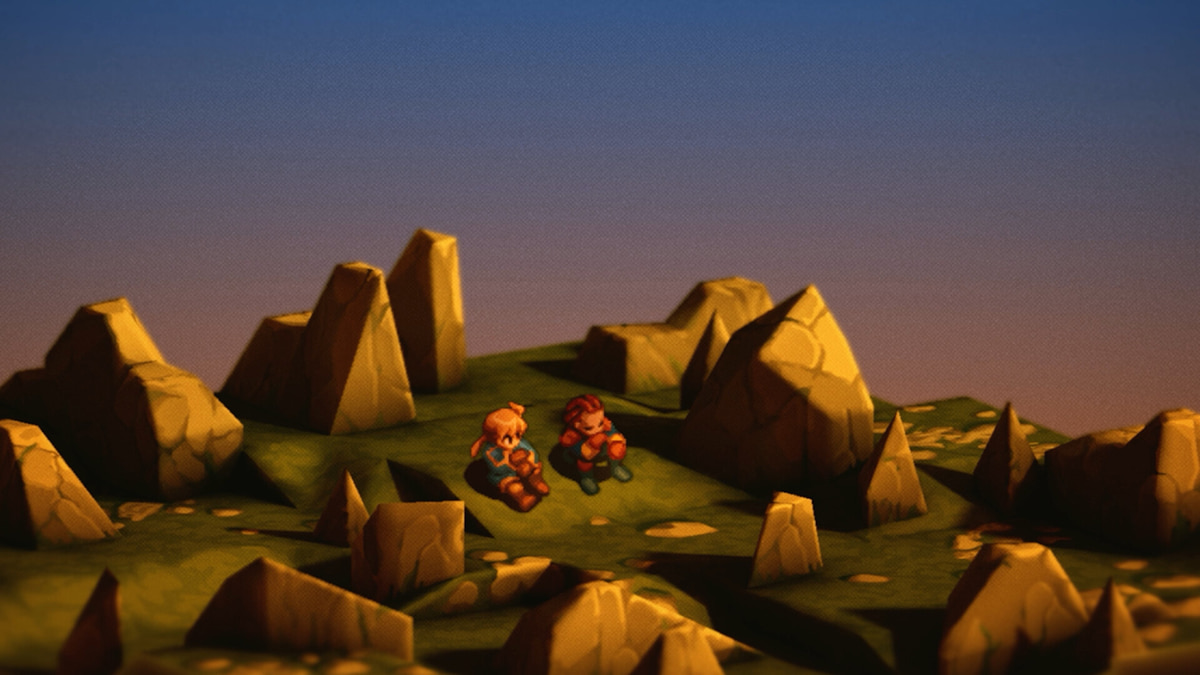You can trust VideoGamer. Our team of gaming experts spend hours testing and reviewing the latest games, to ensure you're reading the most comprehensive guide possible. Rest assured, all imagery and advice is unique and original. Check out how we test and review games here
Deus Ex: Human Revolution is the story of a man who gets blown apart, and then put back together again. Viewed from another angle, it’s also the story of Eidos Montreal taking on a decade-old franchise – one created by Ion Storm at the turn of the millennium – and attempting to make it their own.
In both cases, you’d be forgiven for being pessimistic in your expectations. A terrorist attack at the start of Human Revolution leaves security chief Adam Jensen as a stumpy, mutilated mess, while Eidos has to deal with the legacy of the original Deus Ex – an epic sci-fi RPG that’s often cited as one of the best games ever made. Under the circumstances, failure seems inevitable for hero and studio alike.
But, against the odds, both parties find success. Via the wonders (and horrors) of modern science, Jensen is rebuilt as a mechanical force of retribution, a walking milestone of technological progress. Meanwhile, Eidos Montreal shows commendable bravery in delving into the world built by Warren Spector and chums over 10 years ago – a world that is dirty, paranoid and littered with betrayal, yet irresistibly thrilling to explore.
As most people will know by now, this is actually a prequel to the first Deus Ex. Veterans of the previous games will take delight in spotting the myriad references to events and characters who pop up further down the timeline, but there are key differences between the 2027 landscape that Jensen explores and the ones traversed by future heroes JC Denton and Alex D.
Human Revolution unfolds at a landmark point in time for bio-mechanical augmentation. Companies like Sarif Industries have successfully pioneered robotic limbs and organs that can replace and outperform their flesh-and-blood counterparts, but the public are reacting to these innovations with a mix of awe, suspicion, and outright disgust. Arguments over the ethics of transhumanism are creating extremists on both sides, violent public disorder is on the cards, and mysterious political forces are pulling strings from the shadows, manipulating the situation to their own ends.
It’s against this backdrop that Jensen’s story plays out, with our rebuilt super-cop searching for the ruffians who attacked Sarif’s headquarters in Detroit, robbing our hero of his arms and much of his sense of humour. As with previous games, Human Revolution is a first-person RPG, although the game now switches to a third-person view whenever you’re skulking about in cover – whether it be for stealth or combat purposes. You can roll between hiding spots via a system that’s vaguely similar to Gears, but as soon as you leave cover you’ll return to a standard FPS view. The transition can seem a bit jarring at first, but thankfully you’ll soon become comfortable with the frequent change-ups.
Gameplay alternates between large hub areas, ones in which you’re relatively free to explore, chat to people and stock up on supplies, and more action-driven scenarios in which you’re attempting to reach an objective by sneaking or blasting your way past dozens of guards. In the former situations Jensen will strut about in a trenchcoat (essential menswear for any future dystopia) while the latter see him adopt a more streamlined, body-armour look; despite this distinction, the line between the two scenarios is often blurred. There will often be non-hostile NPCs present during major story missions, and you’ll certainly get into your fair share of scraps while exploring the hub areas. Indeed, the game will usually give you the freedom to unload your weapons or technical abilities on the general populace; search for Human Revolution on YouTube and you’ll be greeted by several hooker-punching montages, made using the preview code that was illegally leaked online some months ago. As distasteful as these clips may be, they certainly say something about the freedom Eidos Montreal has tried to bring to the party.
As I said recently (and for the umpteenth time), freedom was a big part of the original Deus Ex – perhaps the most important ingredient of all. The developers of Human Revolution have clearly strived to emulate this, allowing the player great leeway in terms of how they approach a given situation. At the most basic level, you’ll invariably be able to creep past foes or engage them in full-on combat. Even within this binary choice there’s a sublevel of options: do you taser the guards or tranquilise them from afar, or else time your movements so that you avoid them altogether? If you’re taking a more violent approach, do you snipe them, close in and shoot them with a silenced pistol, or simply dash in and blow your foes away with a shotgun?
All of the above are viable approaches, although it must be said that straight combat is no easy matter. Human Revolution may look and feel like a standard FPS at times, but the action takes no prisoners. Gunplay is entirely skill-based, rather than being determined by Fallout 3-style hidden dice rolls, but “going Rambo” is a suicidal tactic on anything but the lowest difficulty setting. Even with the help of a contemporary recharging health setup, a handful of bullets are all it takes to end your life.
If you’re determined to launch an all-out assault on your foes, the best tactic is to hole yourself up in a corridor or room with one entrance, and to pick off the opposition one at a time. While the AI is smart enough not to simply stand in the open, foes are generally still happy to come to you – even if it means entering a killzone that slaughtered their buddies a few moments ago. While the shooter elements in Deus Ex work perfectly well, there’s no doubt that the raw action is at its best when you’re taking a quieter approach – tasering watchmen and dragging their bodies out of sight, or waiting for the perfect moment to crawl through a busy room. At moments like this, the game recalls the spirit of Metal Gear Solid – high praise indeed for any stealth outing.
While there’s a bevy of nice upgrades for your weapons – explosive rounds for your shotgun, and a mod that shows exactly where your crossbow bolt will land – there’s no doubt that the best toys on offer are those that are attached to Jensen himself. Earn enough XP and you’ll unlock a Praxis point, a valuable currency that can be used to open up new tools and weapons on the electronic Swiss army knife that passes for Jensen’s body. However you’re choosing to play, there’s definitely something on the skill tree that’ll prove invaluable – allowing you to see through walls, lob about heavy in-game objects, or even turn invisible. Since some of these powers will open up otherwise inaccessible paths to your objectives, early-game upgrades can often leave you with a gnawing dilemma.
Sadly – or perhaps happily, depending on your outlook – this indecision doesn’t last long. While there’s no shortage of sexy new tricks on offer, it’s surprisingly easy to fill up the tree. Up until now Eidos Montreal has insisted that you won’t be able to get everything in the course of a single playthrough. While that’s technically true, you’ll certainly get all the augmentations that you really want. If you’re doing all the side quests on offer you’ll collect XP with surprising speed, and you can find a limited number of Praxis kits on sale, or even just lying around if you look hard enough.
Beyond this, you eventually realise there are one or two upgrades that are far more useful than the others. While there’s been lots of coverage of the fact that Jensen can learn to punch through walls, killing the hapless enemy on the other side, you’re only able to do this at specific points in the world, which are comparatively scarce. You’d do far better to invest your points in X-ray vision or the aforementioned cloaking ability, both of which prove invaluable under any circumstance. There are a few skills (or even entire branches) that you really don’t need, and once this becomes apparent the whole upgrade process loses a little of its former sheen. The original Deus Ex forced you into either/or choices, preventing you from taking all the best powers on a single playthrough, and it would have been great if Eidos Montreal had followed suit here.
In terms of general play, however, it’s endlessly gratifying to know that there’s usually an alternative solution to the problems at hand. It’s a shame that the game forces you into a boss fight every so often, because elsewhere you’re completely free to avoid combat altogether. While the build-up to these encounters is usually handed well, showcasing some of the most visually creative environments in the story, they still feel like a design hiccup in a game that’s otherwise content to let you play the way you want. If you’ve been avoiding combat, the first of these battles may prove particularly challenging (and annoyingly reliant on a gaming cliché that I won’t reveal here). Subsequent boss fights will present fewer issues – partly because you’ll be expecting trouble, and partly because you’ll have a better selection of tricks up your sleeve.
I may sound like I’m being overly critical of Human Revolution’s shortcomings, but if this is the case it’s only due to the fact that I love pretty much everything else about it. The level design is excellent, especially in the second hub area, Shanghai. On paper, it’s nothing we haven’t seen before – another post-Blade Runner Asian sci-fi metropolis, with fluorescent lights bleeding through the gloom – and yet rarely have we seen the idea so well executed in video game form. It’s not just the size of the area, or the fact that there are loads of places and secrets to uncover; it’s the fact that the entire place feels alive and inhabited. NPCs tend to be relatively fixed in terms of their movements (or lack thereof), but they’ve all got something to say – their gossip often tying in to wider themes, or to places or people you’ve yet to visit. Some of this chatter is important exposition, some of it is just background colour, but it all helps to make your surroundings feel remarkably organic – even if much of the world seems determined to replace its humanity with something shiny and robotic.
These nuggets of info aren’t limited to the things you hear, either. About halfway through Human Revolution I started to wonder if the hacking mini-game was beginning to outstay its welcome. The game itself is a strange sort of territory-capture contest, a mix of limited tactics and outright luck that gets a lot easier if you upgrade the associated skills. It’s better than the system used in BioShock, but the novelty does wear off over time – especially if you’re hacking every terminal you can find. But here’s the thing: there’s a good chance you’ll want to do just that. Pretty much every computer in the game – and there are hundreds of the things – has something worthwhile to read on it. It might tie into the plot, hint at a hidden stash of weapons elsewhere, or it might simply uncover a bitchy discussion between two co-workers – and if it’s the latter, you can be sure you’ll find another piece of the puzzle elsewhere.
In short, an empty room is rarely an empty room in Human Revolution. Much of this content may go ignored by many players, but nine times out of ten you’ll be rewarded with an interesting discovery if you’re prepared to dig about. The dialogue and plotting are extremely tight, juggling complex themes and characters with confidence and intelligence, and thankfully most of the voice acting is of a quality that does justice to the script. These strengths are shown off to particular effect during the set-piece conversations that crop up every once in a while. Here Jensen verbally duels with a key NPC, attempting to manipulate the flow of conversation to reach the information or outcome he needs.
At each break in the chat, players must opt from one of three approaches to follow next – “threaten”, “pinpoint” and “advise” might be a typical set of options. You’re given a rough overview of exactly what Jensen will say, but there’s no way to know how the other person will react: you have to just watch their face and listen to their tone as they speak, and then make a decision based on that. While the facial animation falls short of the standards set by LA Noire or even Mass Effect, these interludes still feel commendably fresh, even if the raw mechanics aren’t that much of an evolution from the dialogue trees of old. In their own way, these conversations are just as satisfying as the moments where you’re silently picking off badguys like a mechanised Batman (Jensen has the gravelly voice to match). I’d certainly be delighted to see other developers pinching the idea for future projects.
While we’re on the subject of all things audio-related, special mention must go to Michael McCann’s soundtrack, which is another clear highlight. His original theme undoubtedly helped Human Revolution’s first CGI trailer to carry significant weight, and his efforts across the game as a whole are equally potent. If you’re a Deus Ex fan you’ll spot familiar themes and motifs as they are mixed into the new world, yet another way in which the game pays homage to its predecessors while building its own identity. There’s certainly no cause for concern if you’re an absolute newcomer to the series, but if you do have previous experience of the Deus Ex canon you should be delighted by the nods and winks made in your direction.
I’m not sure if there will ever be another game to carry the same impact and long-lasting legacy as the original Deus Ex; in terms of my own tastes, I’d be amazed if there were. That said, I think that Human Revolution is as worthy a successor as any fan could hope for. The loading times (on Xbox 360, the version tested) are longer than I’d like, but this is small price to pay for the resulting experience. It’s a hugely ambitious game, and naturally the odd element does fall short – your first mission is littered with cause-and-effect variables, but as the game progresses there seem to be fewer moments where your actions have major consequences. Still, the rest of the experience is so slick – so thought-provoking, dynamic, and endlessly enjoyable – that you’ll be far too preoccupied to notice.
Perhaps the strongest compliment I can pay Eidos Montreal is this: with its grand design, dynamic play and sheer wealth of ideas – not to mention its old-fashioned pre-occupation with air vents – Deus Ex: Human Revolution is reminiscent of the best efforts from the golden era of PC gaming at the end of the 90s. It’s a modern release imbued with the finer qualities of an age gone by.
Deus Ex: Human Revolution
- Platform(s): macOS, PC, PlayStation 3, Xbox 360, Xbox One
- Genre(s): Action, First Person, RPG, Shooter

/https://oimg.videogamer.com/images/c031/deus_ex_3_39.jpg)
/https://oimg.videogamer.com/images/a8ed/deus_ex_3_53.jpg)
/https://oimg.videogamer.com/images/8fd2/deus_ex_3_59.jpg)
/https://oimg.videogamer.com/images/0603/deus_ex_3_46.jpg)
